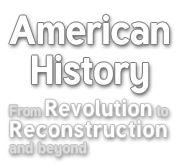By the mid-1970s, an era of consolidation began. The Vietnamconflict was over, followed soon afterward by U.S. recognition ofthe People”s Republic of China and America”s Bicentennialcelebration. Soon the 1980s — the “Me Decade” — ensued, inwhich individuals tended to focus more on more personal concernsthan on larger social issues.In literature, old currents remained, but the force behind pureexperimentation dwindled. New novelists like John Gardner, JohnIrving (The World According to Garp, 1978), Paul Theroux(TheMosquito Coast, 1982), William Kennedy (Ironweed,1983), andAlice Walker (The Color Purple, 1982) surfaced withstylisticallybrilliant novels to portray moving human dramas. Concern withsetting, character, and themes associated with realism returned.Realism, abandoned by experimental writers in the 1960s, alsocrept back, often mingled with bold original elements a daringstructure like a novel within a novel, as in John Gardner”sOctober Light (1976) or black American dialect as in AliceWalker”s The Color Purple. Minority literature began toflourish.Drama shifted from realism to more cinematic, kinetic techniques.At the same time, however, the “Me Decade” was reflected in suchbrash new talents as Jay McInerny (Bright Lights, BigCity,1984), Bret Easton Ellis (Less Than Zero, 1985), and TamaJanowitz (Slaves of New York, 1986).The close of the 1980s and the beginnings of the 1990s sawminority writing become a major fixture on the American literarylandscape. This is true in drama as well as in prose. AugustWilson who is continuing to write and see staged his cycle ofplays about the 20th-century black experience (including PulitzerPrize-winners Fences, 1986, and The Piano Lesson, 1989) –standsalongside novelists Alice Walker, John Edgar Wideman, and ToniMorrison.Asian-Americans are also taking their place on the scene. MaxineHong Kingston (The Woman Warrior, 1976) carved out a placeforher fellow Asian-Americans, among them Amy Tan, whose luminousnovels of Chinese life transposed to post-World War II America(The Joy Luck Club, 1989, and The Kitchen God”sWife,1991) havecaptivated readers. David Henry Hwang, a California- born son ofChinese immigrants, has made his mark in drama, with plays suchas F.O.B. (1981) and M. Butterfly (1986).A relatively new group on the literary horizon are theHispanic-American writers, including the Pulitzer Prize-winningnovelist Oscar Hijuelos, the Cuban-born author of The MamboKingsPlay Songs of Love (1989); short story writer Sandra Cisneros(Women Hollering Creek and Other Stories, 1991); andRudolfoAnaya, author of Bless Me, Ultima (1972), which sold300,000copies, mostly in the western United States.
previous – next>
previous – next>

Outlines > Literature 1991 > American Prose Since 1945: Realism and Experimentation >